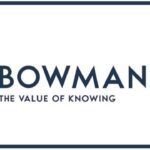By Hon. Prof. Kariuki Muigua, OGW, PhD, C.Arb, FCIArb is a Professor of Environmental Law and Dispute Resolution at the University of Nairobi, Member of Permanent Court of Arbitration, Leading Environmental Law Scholar, Respected Sustainable Development Policy Advisor, Top Natural Resources Lawyer, Highly-Regarded Dispute Resolution Expert and Awardee of the Order of Grand Warrior (OGW) of Kenya by H.E. the President of Republic of Kenya. He is The African ADR Practitioner of the Year 2022, The African Arbitrator of the Year 2022, ADR Practitioner of the Year in Kenya 2021, CIArb (Kenya) Lifetime Achievement Award 2021 and ADR Publisher of the Year 2021 and Author of the Kenya’s First ESG Book: Embracing Environmental Social and Governance (ESG) tenets for Sustainable Development” (Glenwood, Nairobi, July 2023) and Kenya’s First Two Climate Change Law Book: Combating Climate Change for Sustainability (Glenwood, Nairobi, October 2023), Achieving Climate Justice for Development (Glenwood, Nairobi, October 2023) and Promoting Rule of Law for Sustainable Development (Glenwood, Nairobi, January 2024)*
Africa is a continent that is richly endowed with a variety of mineral resources, with potential for economic growth and development. The continent is home to approximately 30% of the world’s mineral reserves. The Democratic Republic of the Congo (DRC), for example, produces over 70% of the world’s cobalt. DRC and Zambia together supply nearly 10% of global copper. Botswana and South Africa produce a significant amount of diamond while Ghana and South Africa are significantly endowed with gold deposits. Africa is therefore classified as a major producer of many key mineral commodities in the world, with bountiful reserves of vital metals and minerals including gold, diamond, cobalt, bauxite, iron ore, coal, and copper available across the continent. Some of the major mining countries in Africa are DRC, South Africa, Namibia, and Zimbabwe.
Kenya is also richly endowed with industrial minerals including soda ash, fluorspar, diatomite and gemstones. Further, it has been argued that Africa has an opportunity to emerge as a production hub for ‘rare earths’ with significant deposits being available in the continent especially in eastern and southern countries including South Africa, Madagascar, Malawi, Kenya, Namibia, Mozambique, Tanzania, Zambia and Burundi. Rare earths have been described as the catalysts of industrial societies in the 21st century since they are vital to key products from hi-tech items including smartphones and monitors to energy conversion systems such as wind turbines, photovoltaic panels and electrical machinery and even military equipment including lasers and radar. Sustainable mining is therefore a pertinent concern in Africa in order to ensure that the abundant mineral resources in the continent are able to trigger social and economic development.
The Africa Mining Vision seeks to achieve transparent, equitable and optimal exploitation of mineral resources in Africa in order to underpin broad-based sustainable growth and socio-economic development. It recognizes the need for a sustainable and wellgoverned mining sector in Africa that effectively garners and deploys resource rents and that is safe, healthy, gender and ethnically inclusive, environmentally friendly, socially responsible and appreciated by surrounding communities. The Vision identifies the challenges that riddle the mining industry in Africa including environmental, social and cultural concerns and proposes several solutions to address these challenges. The Vision not only seeks to guide the mining industry in Africa, but it also aims at ensuring sustainable utilization of natural resources in Africa in order to ensure that the continent’s natural resources are used to transform the social and economic development path of the continent.
Further, the Vision seeks to ensure the adoption of an integrated approach in the governance of Africa’s mineral resources and the involvement of all stakeholders in the governance process. The Africa Mining Vision explores how development can be achieved through the creation of local value, driven by the strategic use of mineral resources in Africa. It charts a path for generating and realizing various types of linkages arising from the mining sector through measures such as industrial development and technical upgrading. Further, the Africa Mining Vision recognizes the contribution of Artisanal and Small-Scale mining (ASM) to local economic development, and fosters women’s rights and gender justice. The Vision also establishes a progressive fiscal regime that can curb the financial misuse of the continent’s resources through tax evasion and avoidance and illicit financial flows from the mineral sector.
The Africa Mining Vision also upholds the principle of Free, Prior and Informed Consent (FPIC) for mining-affected communities, and stipulates measures to address the social and environmental impacts of mining. The Africa Mining Vision identifies opportunities that can accelerate benefits from the mining industry in Africa including the use of resource rents, upscaling physical infrastructure, downstream value addition, upstream value addition and technology and product development. The Africa Mining Vision is very integral in enhancing sustainable mining in Africa. It acknowledges that effective management of the mineral resources in the continent is critical to transform the sector in a sustainable manner. Realizing the ideal of the Africa Mining Vision is essential in promoting sustainable mining in Africa.
Agenda 2063 also embraces the concept of sustainable mining and calls for the implementation of the Africa Mining Vision in order to realize this ideal in Africa. Agenda 2063 represents a shared strategic framework for inclusive growth and sustainable development and a global strategy to optimize the use of Africa’s resources for the benefit of all Africans. It stipulates the importance of African and international initiatives for better governance in the mining sector and the extractive industry. According to Agenda 2063, Africa’s natural resources need to be governed effectively to foster transparency and counter illicit resource outflows and unacceptable exploitation of Africa’s natural resources. In this regard, Agenda 2063 calls upon the African Union (AU) member states to fully implement the Africa Mining Vision. Actualizing Agenda 2063 can therefore fast track the implementation of the Africa Mining Vision and realization of sustainable mining in Africa.
The Mining Act of Kenya also embraces the aspect of sustainable mining. The Act enshrines sustainable development as one of the guiding principles in developing the mining sector in Kenya. It also advocates for the development of the mining sector in Kenya in a manner which promotes compliance with international conventions and national policies relating to the sustainable development of the mineral resources and ensures that mining operations take into account local and community values. It further calls upon mining entities to promote sustainable use of land through restoration of abandoned mines and quarries. The Mining Act therefore embraces the concept of sustainable mining by enshrining measures to ensure the protection of the environment, community development, safety of prospecting and mining operations and health and safety of persons undertaking those operations among others.
Sustainable mining is thus vital in Africa. There has been increased demand on the mining industry to adopt more environmentally and socially responsible practices in Africa. It has been pointed out that with shareholders and lenders demanding greenhouse gas emissions and pollution reduction, plus improvements in worker and community welfare, there is a growing belief that it is in the mining industry’s best interests to adopt more responsible practices to increase productivity and avoid adverse publicity. As a result of these concerns, private and public sector led mining activities across Africa have begun to prioritize sustainable techniques to promote environmental sustainability, social responsibility, and good business practices.
In turn, the sustainable mining industry has become an increasingly attractive investment opportunity for global players seeking to enhance their returns on investment while spearheading climate protection and resilience. Sustainable mining can unlock economic and social development in Africa while fostering environmental conservation and confronting the threat of climate change. However, several problems hinder the realization of the ideal of sustainable mining in Africa. It has been pointed out that growth in Africa’s mineral-rich countries is slipping, and inequality and economic fragility are on the rise. Further, many African countries are under pressure to enter into unfair mining deals and contracts with foreign companies, and to hand out tax incentives to such companies a situation that ends up hurting them in the long term. Despite boasting vast mineral wealth, the mining industry in Africa has spawned gloomy tales of the natural resource curse phenomenon.
In Africa, mineral resources are extracted mainly for processing and use outside the continent, and mineral sectors have remained an enclave and disconnected from broader economies. It has been shown that public debt and fiscal stress is rising in several mineral-rich African countries such as Nigeria, Zambia, Angola and Mozambique. Further, Angola, Democratic Republic of the Congo (DRC) and Nigeria are good examples of African countries wellendowed in natural resources that suffer widespread poverty. There has also been prevalence of conflicts linked to natural resources in countries such as DRC. From the foregoing, it is evident that Africa is yet to harness the full potential of its mineral endowments for sustainable and inclusive development. The continent is richly endowed with a variety of mineral resources, with potential for economic growth and development but performance so far has not been consistent with expectations. There is need to embrace sustainable mining in Africa in order to unlock growth and prosperity in Africa.
*This is an extract from the article: “Embracing Sustainable Mining in Africa,” 1(2) Journal of Appropriate Dispute Resolution & Sustainability (2024) p. 120 by Hon. Prof. Kariuki Muigua, OGW, PhD, Professor of Environmental Law and Dispute Resolution, Senior Advocate of Kenya, Chartered Arbitrator, Kenya’s ADR Practitioner of the Year 2021 (Nairobi Legal Awards), ADR Lifetime Achievement Award 2021 (CIArb Kenya), African Arbitrator of the Year 2022, Africa ADR Practitioner of the Year 2022, Member of National Environment Tribunal (NET) Emeritus (2017 to 2022) and Member of Permanent Court of Arbitration nominated by Republic of Kenya. Prof. Kariuki Muigua is a foremost Environmental Law and Natural Resources Lawyer and Scholar, Sustainable Development Advocate and Conflict Management Expert in Kenya. Prof. Kariuki Muigua teaches Environmental Law and Dispute resolution at the University of Nairobi School of Law, The Center for Advanced Studies in Environmental Law and Policy (CASELAP) and Wangari Maathai Institute for Peace and Environmental Studies. He has published numerous books and articles on Environmental Law, Environmental Justice Conflict Management, Alternative Dispute Resolution and Sustainable Development. Prof. Muigua is also a Chartered Arbitrator, an Accredited Mediator, the Managing Partner of Kariuki Muigua & Co. Advocates and Africa Trustee Emeritus of the Chartered Institute of Arbitrators 2019-2022. Prof. Muigua is a 2023 recipient of President of the Republic of Kenya Order of Grand Warrior (OGW) Award for his service to the Nation as a Distinguished Expert, Academic and Scholar in Dispute Resolution and recognized among the top 5 leading lawyers and dispute resolution experts in Band 1 in Kenya by the Chambers Global Guide 2022 and was listed in the Inaugural THE LAWYER AFRICA Litigation Hall of Fame 2023 as one of the Top 50 Most Distinguished Litigation Lawyers in Kenya and the Top Arbitrator in Kenya in 2023.
References
United Nations Environment Programme., ‘Mining.’ Available at https://leap.unep.org/knowledge/glossary/mining (Accessed on 28/09/2023).
Muigua. K., Wamukoya. D., & Kariuki. F., ‘Natural Resources and Environmental Justice in Kenya.’ Glenwood Publishers Limited, 2015.
Mining Act, No. 12 of 2016, Laws of Kenya.
International Labour Organization.,’ Mining (Coal; other Mining) Sector.’ Available at https://www.ilo.org/global/industries-and-sectors/mining/lang– en/index.htm (Accessed on 28/09/2023).
National Academies Press., ‘Evolutionary and Revolutionary Technologies for Mining.’ Available at https://nap.nationalacademies.org/read/10318/chapter/4 (Accessed on 28/09/2023).
Massachusetts Institute of Technology., ‘The Future of Strategic Natural Resources.’ Available at https://web.mit.edu/12.000/www/m2016/finalwebsite/solutions/minin g.html (Accessed on 28/09/2023).
Pan African Resources., ‘Sustainable Mining.’ Available at https://www.panafricanresources.com/sustainablemining/#:~:text=Sustainable%20mining%20refers%20to%20the,generations%20 can%20also%20be%20met (Accessed on 02/10/2023).
Sammour. J., ‘What Exactly is Ethical Mining?.’ Available at https://www.daintylondon.com/blogs/news/what-is-ethicalmining#:~:text=Whether%20mining%20 metals%2C%20diamonds%20or,its%20 workers%20a%20fair%20wage (Accessed on 02/10/2023).
Well Planning Group., ‘At The Heart of Mining Sustainability is Community Engagement.’ Available at https://www.wallplanning.com.au/atthe-heart-of-mining-sustainability-is-communityengagement/#:~: text=You’ll%20likely%20have%20heard,%3A%20Social%2C% 20Environmental%2C%20Economic (Accessed on 02/10/2023).
Mathiba. G., ‘The Incorporation of the FPIC Principle in South African Policy on Mining-Induced Displacements.’ International Journal on Minority and Group Rights., 2023 (1-23).
Muigua. K., ‘Maximising the Right to Free, Prior, and Informed Consent for Enhanced Environmental Justice in Kenya.’ Available at http://kmco.co.ke/wp-content/uploads/2019/03/Maximising-the-Rightto-FPIC-in-Kenya-Kariuki-Muigua-29th-March-2019.pdf (Accessed on 02/10/2023).
Majer. M., ‘The Practice of Mining Companies in Building Relationships with Local Communities in the Context of CSR Formula.’ Journal of Sustainable Mining, 12 (3): 38-47.
Bezzola. S et al., ‘CSR and Local Conflicts in African Mining Communities.’ World Development, Volume 158, 2022.
United Nations Global Compact., ‘UN Global Compact Strategy 2021- 2023.’ Available at https://ungc-communicationsassets.s3.amazonaws.com/docs/about_the_gc/UN-GLOBAL-COMPACTSTRATEGY-2021-2023.pdf (Accessed on 02/10/2023).
United Nations Economic Commission for Africa., ‘Africa Mining Vision Guidelines.’ Available at https://www.uneca.org/african-mining-visionguidelines#:~:text=The%20overall%20goal%20of%20 the,and%20socio%2Decono mic%20development%E2%80%9D (Accessed on 03/10/2023).
White & Case., ‘Don’t Let a Crisis Go to Waste: Financing Mining & Metals Projects in Africa in 2023.’ Available at https://www.whitecase.com/insight-ourthinking/africa-focus-summer-2023-financing-mining-metalsprojects#:~:text=Africa%20holds%20a%20remarkable%2030,sector’s%20global %20revenue%20in%202022. (Accessed on 03/10/2023).
United Nations., ‘African Countries Urged to Prioritize Green Value Chains for Minerals.’ Available at https://www.un.org/africarenewal/magazine/february-2023/african-countriesurged-prioritize-green-value-chainsminerals#:~:text=Africa%20is%20home%20to%20many,platinum%20metals%2 C%20lithium%20and%20more (Accessed on 03/10/2023).
Statistica., ‘Mining Industry in Africa – Statistics & Facts.’ Available at https://www.statista.com/topics/ 7205/mining-industry-in-africa/ (Accessed on 03/10/2023).
Italian Institute for International Political Studies., ‘The Scramble for Africa’s Rare Earths: China is not Alone.’ Available at https://www.ispionline.it/en/publication/scramble-africas-rare-earths-china-notalone-30725 (Accessed on 03/10/2023).
Africa Union., ‘Africa Mining Vision.’ Available at https://au.int/sites/default/files/documents/30995-docafrica_mining_vision_english_1.pdf (Accessed on 03/10/2023).
Africa Union., ‘Agenda 2063: The Africa we Want.’ Available at https://au.int/sites/default/files/documents/33126-docframework_document_book.pdf (Accessed on 03/10/2023).
Ford. N., ‘Can African Mining ever be Sustainable?’ Available at https://african.business/2022/04/energy-resources/can-african-miningever-be-sustainable (Accessed on 03/10/2023).
Africa Business., ‘African Sustainable Mining Piques Interest of Global Players.’ Available at https://african.business/2023/09/apo-newsfeed/africansustainable-mining-piques-interest-of-globalplayers#:~:text=While%20clean%2Denergy%20mines%20are,large%2Dscale%2 0projects%20in%20South (Accessed on 03/10/2023).
Oxfam., ‘From Aspiration to Reality: Unpacking the Africa Mining Vision.’ Available at https://www-cdn.oxfam.org/s3fs-public/bp-africa-miningvision-090317-en.pdf (Accessed on 03/10/2023).
Henri. A., ‘Natural Resources Curse: A Reality in Africa.’ Resources Policy, Volume 63, 2019.





 Lawyers2 years ago
Lawyers2 years ago
 News & Analysis3 years ago
News & Analysis3 years ago
 News & Analysis3 years ago
News & Analysis3 years ago
 Lawyers2 years ago
Lawyers2 years ago
 News & Analysis3 years ago
News & Analysis3 years ago
 News & Analysis1 year ago
News & Analysis1 year ago
 News & Analysis3 years ago
News & Analysis3 years ago
 News & Analysis1 year ago
News & Analysis1 year ago




























